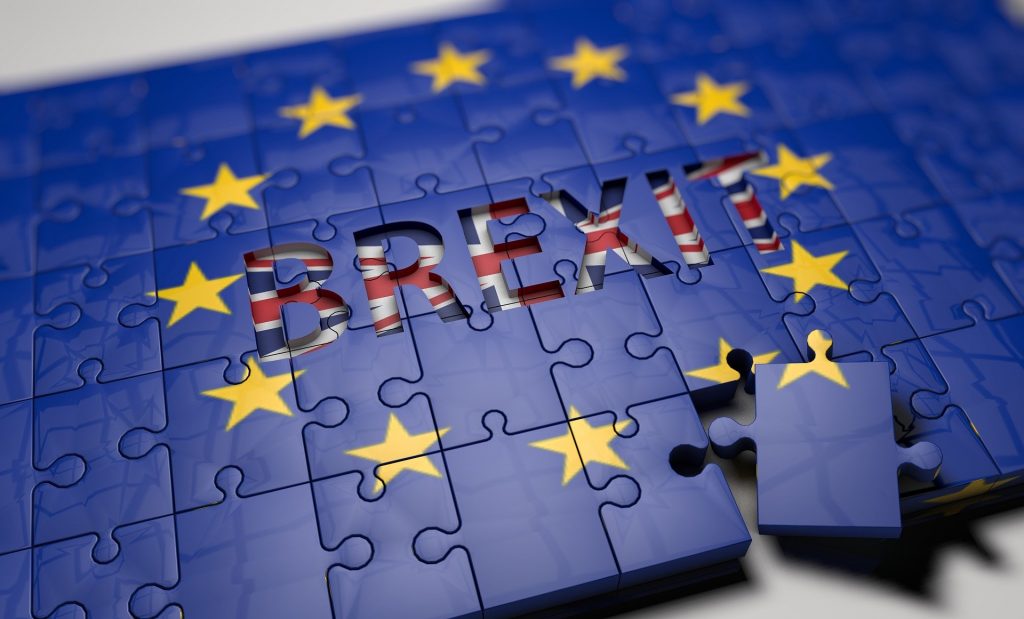Has Brexit created significant delays and introduced new costs for delivery companies? ParcelHero’s head of consumer research, David Jinks MILT, looks at how Britain’s departure from the EU impacted deliveries in the first weeks of the divorce.
On January 1, 2021, the free movement of goods and people between the UK and the European Union (EU) came to an end; 1,651 days after Britain voted to leave the EU and following many tense and sometimes acrimonious negotiations. Was the result the postal apocalypse some of us feared? Or was former Brexit secretary David Davis proved right in his 2016 promise: “There will be no downside to Brexit, only a considerable upside”?
I’ll be honest, this is my second stab at answering the question. When I filed my first version of this column, in the middle of the first week of January, all seemed eerily smooth. This amended version is being written on the Friday (January 8) and things now look to be going considerably more pear-shaped at Britain’s borders.
Senders are struggling to come to terms with tariff codes, proof of origin and a host of other new requirements. And, even as I write, that is becoming an increasing headache for couriers.
Both individuals and companies now need to fill in new documentation including detailed item descriptions, proof of origin and the reason for sending their parcel. In addition, VAT-registered sellers who wish to avoid delays must quote their EORI numbers and the tariff codes of the goods they are shipping.
One international courier revealed on Friday (January 8) it was seeing up to 20% of parcels being sent with incorrect or incomplete data attached. The company had to return all these parcels.
As a result, it announced it was temporarily suspending its European Road Services after a “challenging few days”. It reported increased pressure on turnaround and transit times because of the increased bureaucracy. The courier also said it was seeing delays and congestion at UK ports and more rigid requirements for channel crossings.
Ironically, the impact of the closure of the UK border with France shortly before Christmas, because of the outbreak of a new variant of Covid-19 in the UK, actually helped ease the impact of Brexit in the first days of January. Huge tailbacks had formed in Kent before Christmas as lorries were refused entry into France. These were largely cleared by the beginning of the year, but many companies in the meantime had cancelled cross border shipments, leading to an eerily quiet first few days of January.
Of course, most express parcels handled by couriers are sent to the EU via airfreight, unaccompanied. That means they should have continued to be shipped regardless of the French decision to include truck drivers in their travel ban. In reality, a number of ParcelHero’s courier partners suspended their regular express airfreight shipments, as well as economy surface deliveries, because of issues around demand and staffing. This decision also suppressed volumes in the first days of January, buying time for new post-Brexit routines to settle into place.
By the end of the first week of the new customs regime, however, volumes were beginning to mount and the cracks had begun to appear. As well as some economy European parcel services being suspended, the retail stalwart Marks & Spencer was also expressing concern. It said the new trade arrangements were creating “very complex administrative processes”. It warned increased red tape “will significantly impact our businesses”.
The new measures have also increased prices for both UK and EU customers. Because of the new costs and investments required most international couriers have introduced an additional surcharge on all shipments between the EU and the UK. Most have imposed a minimum surcharge of around €5 on parcels crossing the EU-UK border, rising at a rate of around €0.25 per kg.
That will push up the final price UK shoppers pay for purchases from EU sellers and increase costs for UK exporters to the continent.
Additionally, the UK government now requires all EU companies selling to Brits to register for UK VAT. Most countries do not demand this and, as a result, some smaller European traders have decided to abandon the UK market entirely. That will have a noticeable impact on international parcel volumes.
One final concern for everyone is the looming issue of parcels shipped to Northern Ireland from Great Britain. The UK government has granted a three-month grace period on the need to complete customs declarations when sending parcels to customers in Northern Ireland from the rest of the UK.
Some GB retailers have already suspended sales to Northern Ireland in anticipation of further red tape, however, and B2B shipments of goods valued at over £135 (€150) are already subject to the new procedures.
The UK government says it “recognizes the unique circumstances of Northern Ireland, the impacts of any disruption to parcel movements in the context of the Covid-19 pandemic and specific challenges for operators moving express consignments…HMRC is engaging with operators to finalize arrangements.”
Perhaps a solution that doesn’t involve increased bureaucracy when shipping between NI and Great Britain will be found. Don’t forget, however, this is largely the same team that made the promise I started this column with: “There will be no downside to Brexit, only a considerable upside.” So, we’re not holding our breath.


